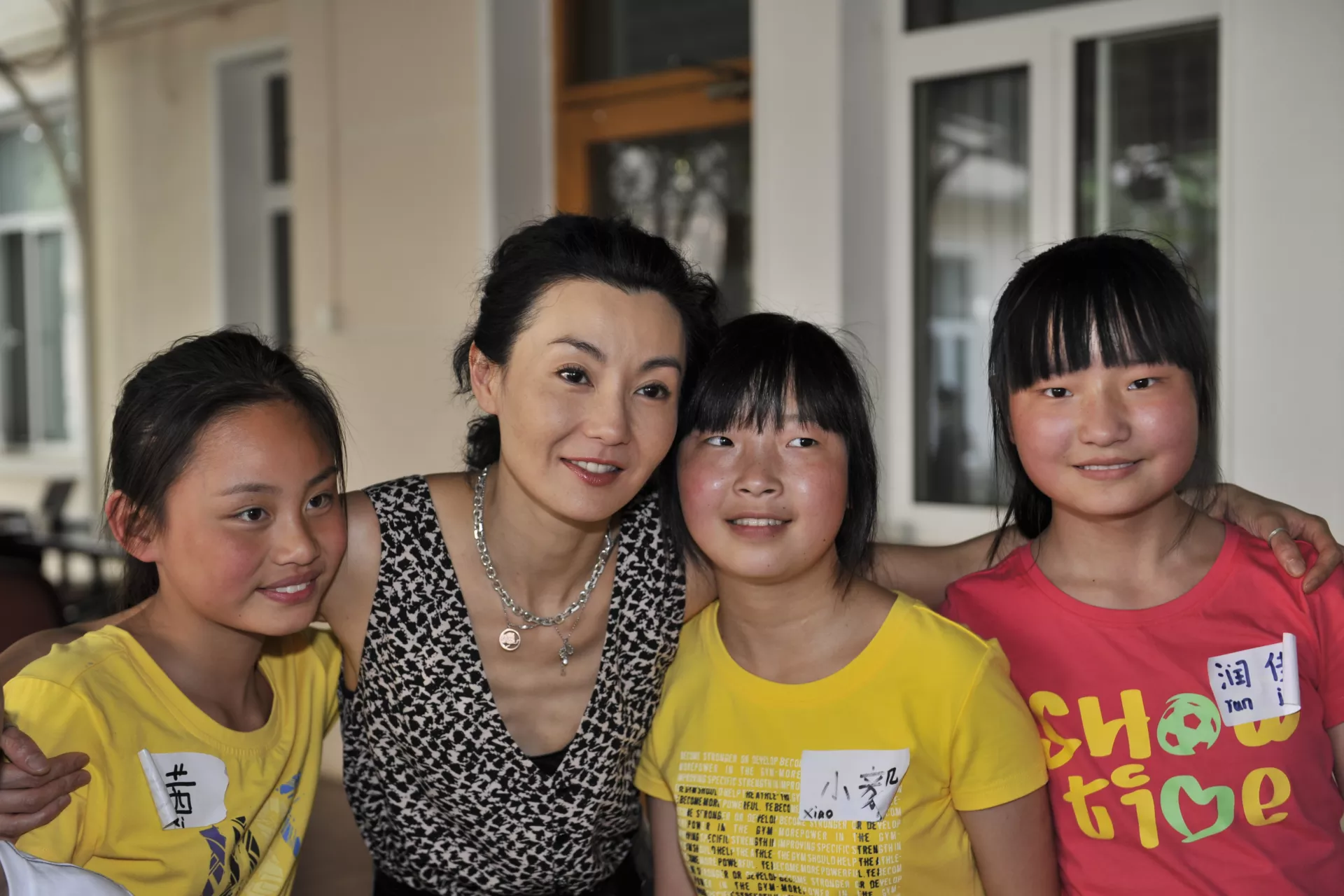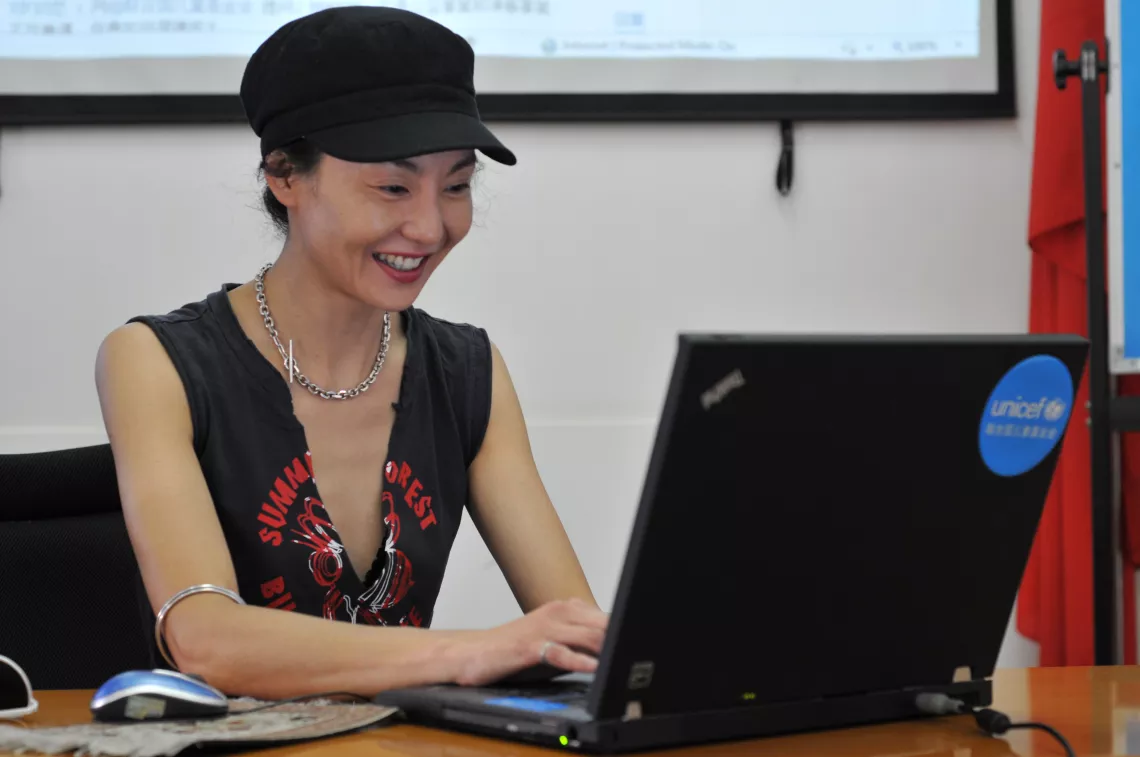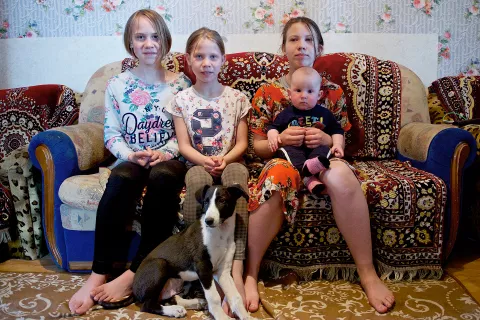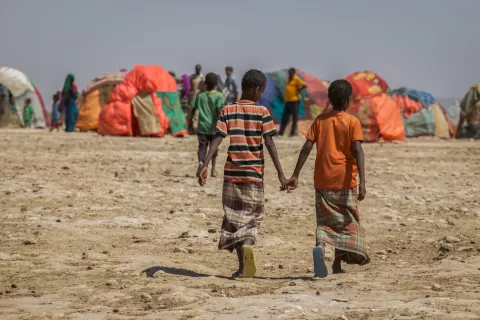In the mood for love
How UNICEF China is promoting child welfare with actress Maggie Cheung

- Available in:
- 中文
- English
Child poverty is not solely a problem for poor countries. Although China is now the world's second largest economy, having overtaken Japan in February, its spectacular economic growth has not yet reached the poorest children and communities. China still has 100 million children living on less than $2 a day and there are stark disparities between urban and rural areas. It is still a developing country and the poverty numbers are huge.
Wednesday 1 June was National Children's Day in China, which made it the perfect time for me to visit Beijing. For the week leading up to Children's Day, UNICEF China ran a campaign around the issue of child poverty in rural provinces. The face of the campaign was actress and UNICEF Ambassador Maggie Cheung. I studied film at university and wrote my dissertation on Hong Kong director Wong Kar-wai, whose films include Days of Being Wild and In the Mood for Love, both starring Maggie Cheung, so I was looking forward to meeting her in her UNICEF role.
To prepare for the campaign, a group of UNICEF staff and Government partners took Maggie and a film crew to see child welfare projects in poor communities in Liangshan, Sichuan Province. This already deprived area is now also affected by HIV and drug use, with many children growing up without one or both parents. UNICEF is working with the Ministry of Civil Affairs (MCA) to establish a child welfare system that can protect the most vulnerable children in China. Liangshan is one of the pilot sites for the project.
I spoke to UNICEF's Cindy Xu about the visit. She told me about an activity centre in one of the villages. “All the children can come to the centre and play with the sports kits and the toys,” Cindy said. “This is such a poor area that many children have never seen such toys in their lives. They don't even know how to play with them.” As well as the activity centre, UNICEF is supporting the local government to hire ‘child welfare directors' – social workers who help the families access government services. “Our project launched less than a year ago but we've already seen changes happening in these families,” Cindy added.
UNICEF held two main events in Beijing to mark ‘China Child Welfare Week' – a press conference and a live Sina Weibo chat. At the press conference, which was organised in partnership with the MCA and Beijing Normal University, Maggie Cheung was joined by a group of children from Henan province. In the spirit of youth participation, the children were not told what to do but given the freedom to design their presentation themselves. I joined the children in the morning to observe their activities.
The session was well facilitated by UNICEF child welfare specialists and local partners, and the children had a great time. Their enthusiasm was infectious and, despite my very limited understanding of Mandarin Chinese, I found myself laughing and clapping along with them. My intention was to stand back and observe, but during the break the children came up to me to take a photo. Simply by being a foreigner, I was effectively a celebrity. Later on the real celebrity, Maggie Cheung, arrived and the children practiced their presentation with her.
I spoke to the youngest participant, ten-year-old Xi-xi, about the morning's activities. “We drew pictures, did paper cutting and crafts and read stories,” she told me. “I drew a picture of my family, with flowers, grasses, farmland and a house. I also drew my wishes for the children in the welfare centre. I wish them all happiness and joy.” It was Xi-xi's first visit to Beijing, which is very different to her home town. “Yesterday we went to see the Olympic Stadium and Tiananmen Square, which was very exciting” she said. “I come from a poor family with two brothers and a sister. I'm the eldest child. I'm excited to be here and meet Maggie Cheung.”'
In the afternoon, the children hosted the press conference. They talked about their lives in Henan province and how these had been changed by the child welfare project. “For children with HIV and disabilities, or those who have been trafficked or abused, I hope they can be as happy as I am,” Xi-xi told the audience of journalists and photographers. It was great to see an event like this where the children were in charge, rather than the adults.
Together with Maggie, the children pinned cut outs representing their hopes on a picture of their village and painted footprints with their hands. Maggie also introduced the video of her trip to Liangshan region. “Many children I met in Liangshan are living without their parents because of HIV,” she said. “UNICEF has helped change their lives. I appeal to you all to share the message so that we can help even more children.”
Our second activity for the week was a live chat with Maggie Cheung on Sina Weibo, the Chinese equivalent of Twitter, on Children's Day itself. The meeting room had been transformed from a youth participation venue into a hi-tech chat room. Chen Tai-ran, an editor from Sina Weibo, was on hand to check the setup and a large screen showed users posts in real time. In the week before the chat, UNICEF China's followers on Weibo had increased from 17,000 to 28,000 and even before the chat started there were hundreds of excited posts from fans.

Maggie arrived half an hour before the chat started and I took photos of her reading users' posts, which we uploaded to the webpage so that users would know it was really her. Then the chat began and Maggie spent the next hour going through users' questions, discussing them with UNICEF staff, and composing her replies. It was often a struggle to keep up, as earlier questions would disappear off the bottom of the screen as new posts appeared. In all there were 2,100 questions, of which Maggie answered 13.
Although Weibo has the same format as Twitter, you can say a lot more in 140 Chinese characters than English letters. One user ‘Swally' asked: “The biggest difference between children in poor areas and the cities is not financial but their view of the world. Have you ever thought of bringing movies to those poor kids to give them a colourful dream?” Maggie replied: “Yes, this is my dream. Many children in rural areas don't have the opportunity to see movies or magazines in their lives. This kind of entertainment can help open their eyes wider and encourage them to study hard to make their dreams come true.”
There were moments of comedy as well. “Maggie we know you can't type Chinese this fast. Who's doing it?” one user asked. Everyone laughed, except Cindy and Lui-li from UNICEF's communications department, who were still frantically typing up Maggie's last response.
After the Weibo chat, I had the chance to interview Maggie myself. I asked her about her visit to Liangshan. “We went to people's houses where the beds, chairs and tables were all from UNICEF,” she said. “Without them they were lying on the floor to do their homework. They were sleeping on bricks and a board. The child welfare centre gave them a place they could go to every day to do activities, rather than being in the streets in the rain doing nothing or taking drugs. This is really important.”
I also asked Maggie how she felt doing the Sina Weibo chat. “I've never done it before, so it was a bit frightening,” she replied. “But it was a great chance to connect with people one-to-one and have a conversation. In the end it was a lot of fun. Next time we'll be more efficient and answer more questions,” she laughed.
I managed to squeeze in a quick chat with Maggie about her Wong Kar-wai films and my British accent, and then it was time to go. It had been a week of frantic activity, last minute crises and occasionally frayed nerves, but overall it was a huge success. For me, it was a chance to work on a high profile campaign and learn more about digital communication in China. Most importantly, we raised public awareness of the issues facing children in remote rural areas of China. As we were about to leave, Tai-ran looked up from his laptop. “In total 100 million people logged on to watch the chat,” he announced to gasps and applause.
The author is Regional Web Coordinator for UNICEF East Asia and Pacific.



